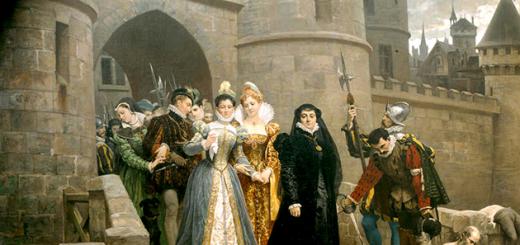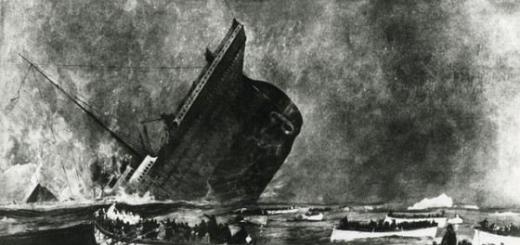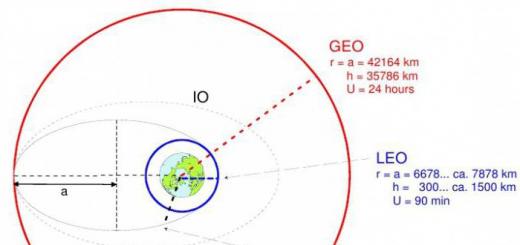Dictionaries of linguistic terms- a kind of branch encyclopedic dictionaries.
The emergence of dictionaries of this type dates back to the end of the 19th century. Prior to this, linguistic terminology was reflected in wider reference books: encyclopedias, explanatory dictionaries of the common language, etc.
The heyday of linguistic lexicography dates back to the 60s. XX century, which is associated with the emergence of new linguistic disciplines, schools and trends representing new terms.
A special place among the dictionaries of linguistic terms is occupied by the dictionary of OS Akhmanova (1966; 7,000 terms). It is not only a generalization of all previous terminological experience, but also a new types dictionary that simultaneously combines the interpretation of the term, its translation into four languages, illustrations of the actual functioning of the term, and the like. Matching terms with terms in the following languages: English, French, German and Spanish.
As a manual for secondary school teachers, the "Dictionary-reference book of linguistic terms" by D. E. Rozental and M. A. Telenkova (M., 1975) was published, which explains the terms of vocabulary, phraseology, phonetics, graphics, spelling, morphology, syntax , stylistics, punctuation in relation to school practice.
It should be noted a number of similar publications prepared by literary critics and addressed to teachers and students: "Dictionary of literary terms" (editor-compiler, L. I. Timofeev, S. V. Turaev. M., 1974); L. Timofeev, N. Vengerov "A Brief Dictionary of Literary Terms" (under the general editorship of L. I. Timofeev. 4th ed., Rev. and added. M., 1963); “A Concise Dictionary of Literary Terms” (edited by L. I. Timofeev, S. V. Turaev. M., 1978).
These books reveal the basic concepts of the theory of literature, highlight issues related to understanding the most diverse phenomena of fiction.
In the dictionary of E. G. Azimov and A. N. Shchukin, more than 2,000 articles describe methodological terminology in the field of teaching languages, native and special.
- Zhirkov L. I. Linguistic Dictionary. 2nd ed. M., 1946.
- Krotevich E. V., Rodzevich N. S. Glossary of linguistic terms. Kiev, 1957.
- Maruso J. Dictionary of linguistic terms / Per. from fr. M., 1960.
- Grabie R., Barbare D., Bergmane A. Dictionary of linguistic terms. Riga, 19b3.
- Vahek I. Linguistic Dictionary of the Prague School / Per. from French, German, English and Czech. M., 1964.
- Hump Eric. Dictionary of American Linguistic Terminology / Per. and additional V. V. Ivanova; Ed. and with prev. V. A. Zvegintsev. M., 1964.
- Rosenthal D. E., Telenkova M. A. Dictionary-reference book of linguistic terms. M., 1975; 2nd ed. M., 1986.
- Akhmanova O.S. Dictionary of linguistic terms. M., 1966; 2nd ed. M., 1969.
- Chelak T. Dictionary of linguistic terms. Chisinau, 1969.
- Keneebaev S., Zhanuzakov T. Russian-Kazakh dictionary of linguistic terms. Alma-Ata, 1966.
- Nikitina S. E. Thesaurus on theoretical and applied linguistics. M., 1978.
- Nasyrov D., Bekbergenov A., Zharimbekov A. Russian-Karakalpak Dictionary of Linguistic Terms. Nukus, 1979.
- School dictionary of terms: In 2 hours / Comp., V. Ya. Korovin. M., 1990.
- Azimov E. G., Shchukin A. N. Dictionary of methodological terms (theory and practice of language teaching). SPb., 1999.
Durnovo N. N. Grammar Dictionary. M.; Pg, 1924.
D.E. ROSENTHAL
M.A. TELENKOVA
DICTIONARY-DIRECTORY
LINGUISTIC
TERMS
Ministry of Education of the RSFSR
MOSCOW "ENLIGHTENMENT"
1985
BBK 81.2R-4
Rosenthal D.E., Telenkova M.A.
Dictionary-reference book of linguistic terms: A teacher's manual. - 3rd ed., Corrected. and additional .- M: Enlightenment, 1985.-E99 p.
The reference dictionary in a clear and accessible form for the teacher will give an interpretation of the most common linguistic terms in the educational and methodological literature (about 2 thousand)
FOREWORD
Purpose of the reference dictionary
In the Soviet era, dictionaries of linguistic terms were repeatedly published, intended for different purposes and different circles of readers. In the early 1920s, N.N. Durnovo, addressed to a secondary school teacher and compiled in the spirit of traditional Russian linguistics Zhirkov (2nd edition was published in 1946), designed for students of philology when they study the course "Introduction to Linguistics". The dictionary of linguistic terms by E.V. Krotevich and N.S. Rodzevich written in Ukrainian (1957). Relatively recently, a linguistic dictionary published by the Academy of Sciences of the Latvian SSR was published, the compilers of which are R. Grabis, D. Barbare, A. Bergmane. The most complete not only in Soviet, but also in foreign linguistics (contains an interpretation of about 7 thousand terms) is the “Dictionary of Linguistic Terms” by O.S. Akhmanova, which meets the needs of the most qualified readers.
A special character associated with certain areas in linguistic science are published in our translation “Dictionary of Linguistic Terms” by J. Maruso (1960), “Linguistic Dictionary of the Prague School” by I. Vahek (1964), “Dictionary of American Linguistic Terminology » E. Hemp (1964).
The presence of a variety of dictionaries does not exclude, however, the creation of a special reference book on linguistic terminology, designed primarily for a language teacher, in whose practice there is often a need not only to clarify the exact meaning of individual linguistic terms, but also to more fully disclose their content for learning goals. Obtaining the necessary information in the available scientific and educational literature is associated with significant difficulties and is a very painstaking work, it is necessary to refer to many sources, since a secondary school teacher (we add in brackets - also a philologist student) has to deal with various sections of the science of the Russian language , such as vocabulary and phraseology, phonetics and orthoepy, graphics and spelling, word formation and morphology, syntax and punctuation, questions of stylistics, historical grammar, history of the literary language, dialectology, lexicography, as well as general linguistics should be added here.
Composition and structure of the reference dictionary
This reference dictionary provides an interpretation of the most common linguistic terms. The vast majority of them are traditional terms of wide use, covering the entire terminology of the school course of the Russian language, a smaller part are more specialized terms of university practice, among which are also the terms of structural linguistics, which are increasingly found in linguistic works, in particular in periodicals not only academic or university type, but also in such widely popular ones as the magazine "Russian language at school", "Russian speech".
The sources for the selection of the vocabulary were scientific and educational literature of a different nature, primarily used by secondary school teachers, meaning the works of leading Russian linguists, university and school textbooks and teaching aids in certain disciplines included in the linguistic cycle, periodicals of theoretical and educational-methodical type.
The purpose of the reference dictionary is the interpretation of terms as references, and not their systematization and unification. The compilers in the main dictionary included widely used terms in the dictionary, and the terms of individual use were left for the dictionary of individual linguists or the academic dictionary of linguistic terminology. Thus, numerous A.A. terms are not included. Shakhmatov, which have not received distribution in the literature. For example, only A.A. Shakhmatov noted in nouns the category faces and non-face, derogatory and pejorativeness, singularity and pairings, aggregates. The same is observed in A.M. Peshkovsky, V.A. Bogoroditsky and other linguists and methodologists.
The terms in the guide are in alphabetical order. If the term is a phrase, then it is alphabetized by the first word, not the stem, for example:
abstract vocabulary
abstract nouns
colloquial vocabulary.
This term is also given elsewhere in the stem word for the corresponding letter, but with a reference, for example:
colloquial vocabulary cm. colloquial vocabulary.
If the term is used in the Latin script, then it is given in its place in alphabetical order. For example, singularia tantum is given after the word synharmonism.
All heading terms are stressed (both primary and secondary, if any).
Building a dictionary entry
The title word of the article is given in bold lowercase letters. In cases where the understanding of the term is facilitated by acquaintance with its foreign etymology, the source of its origin is given in brackets, with, if necessary, the composition of the foreign word, for example:
antonyms(from Greek anti - against + onima - name). If a term has doublets, they are given after it, for example:
morpheme variant(allomorph).
The same doublets are also given in their place in alphabetical order, but with a reference to the main term, for example:
indefinite adjective. Same as short adjective.
When choosing one of two equivalent terms, preference was given to the one that is more common in educational practice. In some cases, it could be a Russian term, in others, a foreign language, most often international. For example, in pairs ending-inflection, imperative mood - imperative preference is given to the first term, and in pairs ABC - alphabet, rounding - labialization- to the second.
If a term has terms of a smaller semantic volume associated with it, then they are given in the same dictionary entry from a paragraph in a light font in a spacing, for example:
word functions.
The function is communicative.
The function is nominative.
aesthetic function.
Terms that are subdivisions of the main term are given in their place in alphabetical order, but with a reference to the main term, for example:
the future is simple cm. Future tense.
If the term to which the reference is given does not form an independent dictionary entry, but is part of an entry devoted to the term of a wider heretical scope, then the referenced entry indicates in brackets the place where to search, for example:
explanatory conjunctions cm. subordinating conjunctions (in article union ).
If the term has several meanings, then all of them are given from a paragraph in the same article under the numbers 1, 2, etc. (see, for example, the article style in the reference dictionary).
If, in order to clarify the meaning of a term, it is advisable to compare it with another term, then after disclosing its meaning, a note is given Wed, For example:
Indent... compare: attack, endurance.
Considering that often the definition of a term, which in itself is sufficient to reveal the concept contained in it, does not, however, give a complete picture of its place in the system of a given section of the science of language, the scope of its application, etc., it seemed useful to strengthen the practical the orientation of the reference dictionary and give a more detailed article that reveals the volume and content of the corresponding linguistic phenomenon, characterizing its use in a wide context (see, for example, articles amphiboly, antonyms, introductory words).
With this understanding of the tasks of the dictionary-reference book, it turned out that in some cases thematically related terms can be given in the form of a general dictionary entry, which has a reference and educational character, which, of course, does not replace the manual on vocabulary, grammar, etc., but allows the reader to consider the whole group terms in a particular system.
Yes, in the article phrase after the disclosure of the meaning of the general term, information is given regarding private terms:
Types of phrases according to the degree of soldering of components:
A) phrases are syntactically free.
B) phrases are not syntactically free.
Types of phrases according to their structure:
a) phrases are simple.
b) complex phrases.
Types of phrases for the main word:
1. Verb phrases:
1) with a noun;
2) with an infinitive;
3) with an adverb;
with adverb.
Nominal phrases:
a) with a noun;
B) with an adjective, pronominal adjective, ordinal number, participle;
c) with an adverb;
D) with an infinitive;
adjectival:
b) with an adverb;
c) with an infinitive;
3) phrases with a numeral in the role of the main word;
the role of the main word.
4) phrases with a pronoun as the main word
3. Adverbial phrases:
1) with an adverb;
with a noun.
In other cases, the explanation of the term is accompanied by a description of the grammatical phenomenon expressed by it. For example:
non-union complex sentence. Compound sentence, the predicative parts of which are connected by the interconnectedness of their meaning and structure, by rhythmic and melodic means without the help of conjunctions or relative words. Differ:
1) non-union complex sentences of homogeneous composition (with parts of the same type). According to the meanings they express (simultaneity or sequence of events; comparison or opposition of actions, etc.) and according to some structural features (enumerative intonation or intonation of opposition, the same type of tense forms of verb-predicates, the possibility of inserting coordinating conjunctions), sentences of this type can be correlated with compound sentences. A white blanket is thrown to the floor, the house is empty, Vera Nikandrovna is alone(Fedin). You are eager for war - we have strengthened the world(Bezymensky);
2) non-union complex sentences of heterogeneous composition (with different types of parts). According to the meanings they express (conditional relations, causal, explanatory, etc.) and according to some structural features (intonation, the order of the predicative parts of a single whole, the lexical composition of the first part, etc.), sentences of this type can be correlated with complex sentences. fight alone - don't turn life around(N. Ostrovsky). Sometimes the horses fell through the belly: the soil was very viscous(Fadeev). Fedor understood: it was about communication Furmanov).
With this classification, transitive or intermediate types of non-union complex sentences are possible that do not correlate with compound or complex sentences, for example, non-union sentences with explanatory relations. The weather was terrible: the wind howled, wet snow fell in flakes...(Pushkin).
Another classification of non-union complex sentences is based on various types of intonation as the most important formal side of their construction. There are:
1) enumeration sentences. Silk does not tear, damask steel does not split, gold does not rust(proverb):
2) comparative sentences. Summer stores, winter eats(proverb);
3) conditional sentences. Wolves to be afraid - don't go to the forest(proverb);
4) explanatory sentences. She imagined a picture: a fragile boat rushes downstream(Veresaev):
5) connecting offers. All objects around were distinctly and exaggeratedly real, the way it happens when you do not sleep all night.(Sholokhov)
In cases where the term has a different interpretation in the linguistic literature, the reference dictionary sets out different points of view on the substance of the issue and provides a brief history of its development (see, for example, articles aspect of the verb, voice of the verb, subordinate clause, phoneme ).
The illustrations in the dictionary entry have a twofold character. Some of them show the use of the term in a linguistic context. For example, in the article alphabet after the interpretation of the term, illustrations are given: Russian alphabet. Latin alphabet. Other illustrations are quotations from the works of writers, showing the functioning of this linguistic phenomenon in speech (see, for example, the article copyright words ). All illustrations are in italics. If it is necessary to highlight any word in the quoted text, then it is given in italics in a row. Morphemes are in bold italics.
The reference dictionary contains a few, quite understandable abbreviations ( Greek- greek word, lat.- latin word, French- French word, etc.).
The 3rd edition includes new linguistic terms that have recently become widespread, and the necessary corrections and clarifications have been made. In some cases, the terms have received a more complete interpretation.
List of used dictionaries
Akhmanova O.S. Dictionary of linguistic terms. M., 1966.
Vahek J. Linguistic Dictionary of the Prague School. Ed. and with a preface by Reformatsky A. A. M., 1964
Grabis R., Barbare D., Bergmane A. Dictionary of linguistic terms. Riga, 1963.
Durnovo N.N. Grammar Dictionary. M.-Pg., 1924.
Zhirkov L.I. Linguistic Dictionary. M., 1946.
Krotevich E.V., Rodzevich N.S. Glossary of linguistic terms.
Maruso J. Dictionary of linguistic terms. Translation from French Andreev N. D, ed. Reformatsky A.A. M., 1960.
Hump E. Dictionary of American Linguistic Terminology. Translation and additions by Ivanov V.V., ed. and with a preface by Zvegintsev V.A.M., 1964.
BUT
abbreviation(italian, abbreviatura slack, brevis-short). 1. A word formed from the names of initial letters or from the initial sounds of words included in the original phrase (initial abbreviation ).
Letter abbreviation. An abbreviation made up of the alphabetic names of the initial letters of the words that form the original phrase. RSFSR(er-es-ef-es-er) (Russian Soviet Federative Socialist Republic).
The abbreviation is alphabetic-sound (with mixed). An abbreviation formed partly from the names of the initial letters, partly from the initial sounds of the words of the original phrase. CDSA(tse-de-sa) (Central House of the Soviet Army).
Sound abbreviation. An abbreviation formed from the initial sounds of the words of the original phrase. university(in higher at medicinal h leading). TASS (T telegraphic a agency With Soviet With union).
On the grammatical gender of indeclinable initial abbreviations cm, genus.
2. The same as a compound word. Komsomol. Minpros.
abbreviation(from lat. ab-from + brevio - shortening). A way of forming words (nouns) from other words or phrases. Cm. truncation at 1st value.
paragraph(German Absatz from v. absetzen - push back). 1. Indent to the right at the beginning of the line (red line).
2. A piece of written or printed text from one red line to another, usually containing a superphrasal unity or part of it, less often one simple or complex sentence.
ablative(ablative) (lat. ablativus - deferred case). In some languages, the case with the original meaning, with the meaning of separation or removal. May correspond in Russian to the genitive case with prepositions from, from, with or creative case.
ablaut(ablaut) (German Ablaut - vowel alternation, transposition). Morphonological alternation playing the role of internal inflection. send - send - ambassador. I will collect - collect - collection - collect.
absolute time. The verbal form of time, independent of other tense forms in the sentence, determined by the relationship with the moment of speech. I I read a book; I was reading a book; I will be reading a book. Wed: relative time.
absolute synonyms cm. absolute synonyms (in the article synonyms )
abstract (lat. abstractus - remote, abstract) vocabulary.
A set of words with an abstract meaning of quality, property, state, action. Usually, this number includes only abstract nouns that have a grammatical expression of the category of abstraction (certain derivational suffixes, the absence, as a rule, of a plural form, incompatibility with cardinal numbers). Shine. Fuss. hardening. Study of. Industrialization. property. Essence. Silence. Enthusiasm. In a broad sense, proceeding only from the semantic principle, words of other parts of speech can also be included in the abstract vocabulary. So, comparing, on the one hand, adjectives stone, round, blue, loud, sweet, fragrant, rough etc., denoting external materialized signsperceived by one of the senses, and on the other - adjectives kind, sincere, experienced, moral, intelligent, sad, lazy etc. (especially adjectives formed from abstract nouns), we find in the second group words with a greater degree of abstraction, which, with the indicated reservation, i.e. without taking into account grammatical indicators, it can be classified as abstract vocabulary. A similar distinction can be made between specific action verbs ( write, read, chop, walk, throw etc.) and verbs expressing feelings, internal state, etc. ( love, hate, have fun, be sad, hope etc.): verbs of the second group have a more pronounced abstractness (cf. their correlation with abstract nouns love, hate, fun, sadness, hope).
The question of the broad application of the term "abstract vocabulary" is subject to further study by linguists.
abstract nouns. The same as abstract nouns.
1. Akhmanova O.S. Dictionary of linguistic terms / O.S. Akhmanov. - M. : Editorial URSS, 2007. - 567p.
2. Big explanatory dictionary of the Russian language / Ch. ed. S.A. Kuznetsov. - St. Petersburg. : Norint, 2010. - 1536 p.
3. Big orthoepic dictionary / Comp. E. N. Zubkova. - M. : LLC "House of the Slavic Book", 2012. - 928 p.
4. The culture of Russian speech: an encyclopedic reference dictionary / Ed. L. Yu. Ivanova, A. P. Skovorodnikova, E. N. Shiryaeva; RAN. Institute of the Russian Language. V.V. Vinogradov. – M.: Flinta; Science, 2003. – 840 p.
5. Ozhegov S.I. Dictionary of the Russian language / S.I. Ozhegov; ed. N.Yu. Shvedova. – M.: Flinta: Nauka, 2008. – 797p.
6. Rosenthal D.E., Telenkova M.A. Dictionary-reference book of linguistic terms / D.E. Rosenthal, M.A. Telenkova. - M.: Astrel: AST, 2009. - 624 p.
7. Russian language: Encyclopedia / Ed. Yu.N. Karaulova. - M .: Great Russian Encyclopedia, 2008. - 704 p.
8. Dictionary of foreign words and expressions / Ed. E. S. Zenovich. - M.: AST: Olympus, 2006. - 784 p.
9. Dictionary of foreign words. - Minsk: Modern writer. 2006. - 608s.
10. Dictionary of structural words of the Russian language / V. V. Morkovkin, N. M. Lutskaya, G. F. Bogacheva and others - M .: Lazur, 2007. - 420 p.
11. Stylistic encyclopedic dictionary of the Russian language / Ed. M.N. Kozhina. – M.: Flinta: Nauka, 2008. – 696s.
12. Tikhonov A. N. Morphemic and spelling dictionary of the Russian language / A. N. Tikhonov. – M.: Astrel, AST, Harvest, 2007. - 704s.
Internet resources:
1. Diploma. Ru: reference and information portal "Russian language". − Access mode: http:// www.gramota.ru
2. Collection "Dictations - Russian" of the Russian General Educational Portal. − Access mode: http://language.edu.ru
3. Culture of writing. − Access mode: http://www.gramma.ru
4. The world of the Russian word. − Access mode: http://www.rusword.org
5. National corpus of the Russian language: information and reference system. − Access mode: http://www.ruskorpora.ru
6. Rhetoric, Russian language and culture of speech, linguoculturology: electronic linguoculturological courses. − Access mode: http://gramota.ru/book/ritorika/
7. Philological portal Philology.ru. − Access mode: http://www.philology.ru
Educational edition
Olga Vasilievna Bondarenko
Irina Vasilievna Kostruleva
Elena Pavlovna Popova
Russian language and culture of speech
Tutorial
(lecture course)
Editor
Signed for seal _______
Format ____________ p. l. – ____ Uch.-ed. l. – ____.
Paper _______. Seal ________. Order Circulation ____ copies
Although dictionaries of linguistic terms are included in a wide range of terminological dictionaries, which, as noted in the preface, are not considered in this manual, we consider it necessary to make a brief review of this type of lexicographic publications, since they are the necessary educational and methodological tools for mastering all linguistic disciplines, including the discipline "Modern Russian language". Dictionaries of linguistic terms allow you to navigate more freely in special editions. Taken together, dictionaries of linguistic terms represent metalanguage of linguistic science in its development and current state [Lesnikov 2012].
First of all, it is necessary to name the fundamental publications - "Linguistics: a large encyclopedic dictionary"(editor-in-chief V.N. Yartseva) and "Russian language: encyclopedia"(the first edition edited by F.P. Filin, the second, substantially revised and supplemented, edited by Yu. N. Karaulov), which were created by prominent Russian linguists (all dictionary entries in these editions are copyrighted). These encyclopedic dictionaries give a three-dimensional picture of linguistic science (established by the 1990s) in its development and current state.
The most complete and actively used terminological dictionary for more than half a century is "Dictionary of linguistic terms" O.S. Akhmanova. It contains and explains the terms of all linguistic disciplines. Terms are accompanied by translations into English, as well as French, German and Spanish counterparts. Dictionary entries contain interpretations of terms, illustrations of their use and examples. The appendix gives the basic concepts of the theory of versification. When referring to this edition, it must be borne in mind that it reflects the terminological apparatus of linguistic science in the 1950s and 1960s. 20th century
"Concise Dictionary of Linguistic Terms" N.V. Vasilyeva,
V. A. Vinogradov, A. M. Shakhnarovich contains the terms of traditional and modern linguistics, including the terms of new linguistic disciplines that were not previously presented in the dictionaries of linguistic terms (for example, the terms of psycholinguistics, contrastive linguistics, etc.). The dictionary reflects the possible ambiguity of some terms, their derivatives. Dictionary entries contain terms that are opposed to the heading word (cf.: dynamics - statics , paradigmatics - syntagmatics ), as well as those related to them ( semasiology , cf. onomasiology). The comments to the dictionary entry contain examples of this linguistic phenomenon in relation to the Russian language or this linguistic concept is revealed with the help of examples.
The formation of cognitive science as a new, actively developing interdisciplinary science brought to life the “Concise Dictionary of Cognitive Terms”, created under the general editorship of E.S. Kubryakova. This edition is the first dictionary of cognitive terms in Russian. It provides a systematic description of the key concepts of cognitive science that are actively used in linguistics (i association, knowledge, cognitive psychology , concept, proposition, reference, frame etc.), explains the features of their use, gives English and German analogues, contains references to an extensive bibliography. The dictionary is addressed primarily to linguists and teachers of foreign languages.
"Big Linguistic Dictionary" V.D. The old man includes the interpretation of the most common linguistic terms and concepts in scientific, educational and methodological literature. It presents traditional (established) and new terms and concepts that emerged in the late XX - early XXI century. and related to advances in cognitive linguistics, pragmalinguistics, hermeneutics, etc.
"A Concise Dictionary-Reference Book of Modern Linguistic Terms" by V. A. Shaimiev contains terms used in modern linguistic literature ( archetype, assertive, dialogization , connector, concept, illocution, fashion with, subtext, presupposition, syntaxeme etc.). The compiler does not give an unambiguous definition of complex terms, but offers their understanding in various linguistic works in the form of quotations. Thus, the book is a combination of a terminological dictionary and an anthology and allows you to see the content of complex linguistic concepts in volume.
"Stylistic Encyclopedic Dictionary of the Russian Language" edited by M.N. Kozhina, created by a large team of linguists, is a fundamental publication, for the first time in Russian lexicography, representing the entire terminological apparatus of the stylistics of the Russian language. Each author's dictionary entry is a detailed interpretation of a linguistic concept (stylistic phenomena, stylistic speech techniques, specific styles and genres), accompanied by a large number of examples. Thus, the reader receives a fairly complete presentation of the systematic theoretical course of the stylistics of the Russian language.
In the textbook N.N. Romanova and A. V. Filippov "Stylistics and Styles" in the dictionary form sets out a systematic theoretical course in the stylistics of the Russian language, presents the concepts of stylistics, describes and illustrates various stylistic phenomena.
A new type of terminological dictionary is the "Experimental system explanatory dictionary of stylistic terms"
S.E. Nikitina and N.V. Vasilyeva. It is a study of linguistic terminology in dictionary form. For the first time, it combines the description of a term as a word of a professional linguistic text and as a member of a terminological system. The dictionary contains mainly terms of linguistic poetics. The authors define the main tasks of the dictionary as follows: 1) to explicate the systemic nature of the terminology, and through it - the structure of the corresponding subject area; 2) to help the reader of linguistic literature understand the meaning of an obscure or unknown term; 3) to teach the reader to actively use the special language. Thus, the dictionary is not only a way to represent terminology, but also a way to study it.
Dictionaries A.M. Lomov describe the terminological apparatus of modern syntactic theory.
Dictionary-reference book E.V. Marinova in lexicographic form is a holistic description of all aspects of the theory of borrowing.
Dictionary-thesaurus N.S. Bolotnova "Communicative stylistics of the text" presents a system of concepts of stylistics and linguistics of the text, which has developed within the framework of the scientific concept developed by the author.
In connection with the special actualization in the last two decades of the problems of the culture of speech, a number of special dictionaries have appeared that represent the concepts of this area of linguistics.
Encyclopedic dictionary-reference book "Culture of Russian speech", created under the general guidance of L.Yu. Ivanova, A.P. Skovorodnikov and E.N. Shiryaev, is the first encyclopedic publication on the culture of Russian speech and reflects the current state of research in this area. The dictionary contains an interpretation of the basic concepts of the theory of speech culture, functional stylistics, rhetoric, as well as some terms of the theory of language communication and other special disciplines related to the culture of speech. The dictionary includes information about most of the most authoritative modern dictionaries of the Russian language of various types. A number of articles are devoted to the characteristics of grammatical, pronunciation, stylistic and other errors, as well as ways to prevent them. The dictionary, which is a scientific and practical publication necessary for an in-depth study of the theory of culture of speech and rhetoric, is addressed to a wide range of users. In many respects, the dictionary “Effective speech communication (basic competencies)”, created under the editorship of A.P. Skovorodnikov.
In the dictionary of V.P. Moskvin "The Expressive Means of Modern Russian Speech", the central object of description was the concepts of classical rhetoric, tropes and figures.
"Educational dictionary: Russian language, culture of speech, style, rhetoric" T.V. Matveeva contains the concepts and terms of modern Russian linguistics and speech science, including the basic terms on which the teaching of the Russian language, culture of speech, stylistics and rhetoric in high school is based.
Educational dictionary-reference book "Russian speech culture" edited by V.D. Chernyak (authors A.I. Dunev, V.A. Efremov, K.P. Sidorenko, V.D. Chernyak) is addressed primarily to schoolchildren, applicants and university students studying the discipline "Russian Language and Culture of Speech". However, the circle of its potential readers is much wider. The reference dictionary will help anyone interested in language and speech to improve their own speech culture and will provide answers to a wide range of questions related to the current state of the Russian language. The book is distinguished by a modern view on the theory of speech culture (represented primarily in the very selection and interpretation of basic and relevant concepts of speech culture). It contains extensive illustrative material, which largely determines the originality of this edition. Each dictionary entry contains examples of the use of the term in modern texts of various stylistic references (from fiction to science) and fragments illustrating the speech phenomenon itself. This zone of the dictionary entry should fix the reader's attention "on one or another fact of speech culture, on the author's linguistic reflection associated with it, on cases of a language game and on specially stipulated and evaluated examples of violation of the language norm."
Many of these terminological dictionaries, especially dictionaries on the culture of speech, are of an educational nature and are mainly aimed at solving applied problems. So, it is actively used in the practice of school and university teaching "Dictionary-reference book of linguistic terms" by D.E. Rosenthal and M.A. Telenkova.
A number of lexicographic publications are specifically focused on the development of university and school curricula. For example, a series of terminological dictionaries by V.N. Nemchenko describes a system of terms for individual sections of linguistic science, correlated with sections of the academic discipline "Modern Russian Language".
"A Concise Guide to the Modern Russian Language" edited by P. A. Lekant is a compact summary of the basic scientific information about the modern Russian language (in accordance with university programs) and is intended for students of philology and teachers of the Russian language. The construction of the reference book combines the encyclopedic principle of alphabetical arrangement of articles and a separate presentation of information on linguistic disciplines - lexicology, phonetics and orthoepy, graphics and spelling, morphemic and word formation, morphology, syntax.
Among the educational dictionaries of linguistic terms, the “Training Dictionary of Linguistic Terms” by I.S. Kulikova and D.V. Salmina, intended primarily for students of philological faculties who are mastering the course "Introduction to Linguistics". The very structure of the dictionary (the material is arranged in accordance with the levels of communicative assimilation of terms) contains the mechanism for the formation of an “internal metalanguage” among students, stable ideas about the dictionary definition as a strict linguistic genre. At the end of the book, a detailed overview of existing dictionaries of linguistic terms is presented.
"Educational dictionary-reference book of Russian grammatical terms" by V.I. Maksimov and R.V. Odekov contains terms used in the traditional, formal and functional description of the Russian language, as well as the names of generalized meanings used in textbooks on the Russian language for foreigners.
"School Dictionary of Linguistic Terms" N.A. Nikolina contains interpretations of the most common linguistic terms used in school textbooks on the Russian language and found in modern scientific and popular science literature on linguistics. Each definition of the term is illustrated with examples from fiction, journalism, colloquial speech.
Of undoubted importance for the teaching of the Russian language is the reference manual compiled by St. Petersburg Russianists - "Russian Language: School Encyclopedic Dictionary".
It is impossible not to note the compilability of a number of terminological dictionaries. So, a series of books by T.V. Zherebilo is deprived of both conceptual unity and systematicity in the selection of the described units, in the organization of the dictionary entry, and in the content of the proposed characteristics. In the "Dictionary-reference book of linguoecological terms and concepts" E.A. Sushchenko without any internal motivation and with extremely primitive interpretations, on one page are, for example, the terms semasiology, semiosphere, semiotics, symbolic
signs , synergy , syntax , synthetic languages, synchrony. So
Thus, the reader cannot get a holistic view of the described scientific direction.
Lkhmanova O.S. Dictionary of linguistic terms: [about 7000 terms]. 5th ed., ster. M.: Librokom: URSS, 2009. 569 p.
Balykina T.M. Dictionary of terms and concepts of testology. M. : Publishing House Moek. state Printing University: Ros. University of Friendship of Peoples, 2000. 160 p.
Balykina T.M. ., Lysyakova M.V., Rybakov M.L. Educational dictionary of terms and concepts of speech culture: [about 800 terms]. M. : Izd-vo Ros. University of Friendship of Peoples, 2003. 126 p.
Bernshtein S.I. Dictionary of phonetic terms / ed. [and with intro. Art.] A.A. Leontiev; Inst. of Languages and Cultures. L.N. Tolstoy. Moscow: Eastern Literature, 1966. 171 p.
Bolotnova N. S. Communicative style of the text: dictionary-thesaurus: textbook for students of higher educational institutions. M.: Flinta: Nauka, 2009. 381 p.
Brusenskaya L.A., Gavrilova G.F., Malycheva N.V. Educational dictionary of linguistic terms. Rostov n/a: Phoenix, 2005. 251 p.
Bulakhov M.G. Experience of the historical dictionary of Russian linguistic terminology: in 5 volumes. Minsk: Belorus, state. ped. un-t im. M. Tanka, 2002-2005. T. 1-5.
Vasilyeva N.V. ., Vinogradov V.A., Shakhnarovich A.M. Brief dictionary of linguistic terms: [about 1600 terms]. 2nd ed., add. M.: Russian language, 2003. 211 p. .
Expressive means of the Russian language and speech errors and shortcomings: an encyclopedic reference dictionary / ed. A.P. Skovorodnikov. M.: Flinta: Nauka, 2009. 480 p. .
Zherebilo T.V. Methods of research in philology: a dictionary-reference book. Nazran: Piligrim, 2013. 198 p.
Zherebilo T.V. Dictionary of linguistic terms. Ed. 5th, rev. and additional Nazran: Piligrim, 2010. 485 p.
Zherebilo T.V. Terms and concepts of linguistics: vocabulary, lexicology, phraseology, lexicography: a reference dictionary. Nazran: Piligrim, 2012. 126 p.
Zherebilo T.V. Terms and concepts of linguistics: general linguistics, sociolinguistics: a reference dictionary. Nazran: Pilgrim,
Brief dictionary of cognitive terms: [about 100 key concepts of cognitive science] / comp. E.S. Kubryakova, V.Z. Demyankov, Yu.G. Pankrats, L.G. Luzin; under total ed. E.S. Kubryakova. Moscow: Philol. fak. Moek. state un-ta, 1997. 245 p.
Kulikova I.S., Salmina D.V. Teaching dictionary of linguistic terms. St. Petersburg; M.: Nauka: Saga: Coincidence, 2004. 176 p.
Culture of Russian speech: an encyclopedic reference dictionary / Ros. acad. Sciences, Institute of the Russian Language. V. V. Vinogradova; resp. ed. L.Yu. Ivanov; under total hands L.Yu. Ivanova, A.P. Skovorodnikova, E.N. Shiryaev. 3rd ed., ster. M.: Flinta, 2011.837 p. .
Lemov A.V. School linguistic dictionary: terms, concepts, comments [more than 1,000 dictionary entries]. 2nd ed. M.: Airispress, 2007. 384 p.
Linguistic Encyclopedic Dictionary / ch. ed. V.N. Yartseva. 2nd ed., add. Moscow: Bolshaya Ros. encyclopedia, 2002. 707 p. .
Lomov A.M. Russian syntax in alphabetical order: a conceptual reference dictionary [more than 900 articles]. Voronezh: Voronezh Publishing House. state un-ta, 2004. 400 p.
Lomov A.M. Dictionary-reference book on the syntax of the modern Russian language [more than 900 articles]. M.: ACT: East-West, 2007. 416 p.
Maksimov V.I., Odekov R.V. Educational dictionary-reference book of Russian grammatical terms. SPb. : Zlatoust, 1998. 304 p.
Marinova E.V. Borrowing theory in basic concepts and terms: a dictionary-reference book. M.: Flinta: Nauka, 2013. 240 p.
Matveeva T.V. Complete dictionary of linguistic terms: educational edition [more than 1,000 terms of stylistics, culture of speech, rhetoric, linguoculturology and other linguistic disciplines]. Rostov n/D.: Feniks, 2010. 562 p. (Dictionaries).
Matveeva T.V. Educational dictionary: Russian language, culture of speech, stylistics, rhetoric [more than 900 terms]. M.: Flinta: Nauka, 2003. 432 p.
Moskvin V.P. Expressive means of modern Russian speech: tropes and figures: general and particular classifications: terminological dictionary. 2nd ed., creatures, revised. and additional M. : LENAND,
2006. 376 p. .
Nemchenko V.N. Basic concepts of lexicology in terms: educational dictionary-reference book: for students-philologists. Nizhny Novgorod: Nizhegorod Publishing House. state un-ta, 1995. 250 p.
Nemchenko V.N. Basic concepts of morphemic terms: a brief dictionary-reference book. Krasnoyarsk: Publishing House Krasnoyar. un-ta, 1985.- 216 p.
Nemchenko V.N. Basic concepts of word formation in terms: a brief dictionary-reference book. Krasnoyarsk: Publishing House Krasnoyar. un-ta, 1985. 208 p.
Nemchenko V.N. Basic concepts of phonetics in terms: educational dictionary-reference book. Nizhny Novgorod: Nizhegorod Publishing House. un-ta, 1993. 251 p.
Nikolina N.A. School dictionary of linguistic terms. M. : Russian word, 2012. 197 p.
Nikitina S.E., Vasilyeva N.V. Experimental system explanatory dictionary of stylistic terms: principles of compilation and selected dictionary entries / Ros. acad. sciences, Ying-linguistics. M.: [b. i.], 1996. 172 p.
Rosenthal D.E., Telenkova M.A. A Dictionary of Linguistic Terms: A Guide for Teachers. 3rd ed., rev. and additional Moscow: Education, 1985. 399 p. .
Vocabulary. Culture of speech communication: ethics, pragmatics, psychology. M. : Flinta: Nauka, 2009. 304 p.
Romanova N.N., Filippov A.V. Stylistics and styles: a textbook for students of higher educational institutions: a dictionary. 2nd ed., ster. M.: Flinta, 2012. 405 p. .
Russian speech culture: educational dictionary-reference book / comp. A.I. Dunev, V.A. Efremov, K.P. Sidorenko, V.D. Chernyak; under total ed. V.D. Chernyak. St. Petersburg: SAGA, Azbuka-klassika, 2006. 224 p.
Russian language and culture of speech: dictionary / comp. A.I. Dunev, V.A. Efremov, K.P. Sidorenko, V.D. Chernyak // Russian language and culture of speech. Workshop. Dictionary: textbook-practical. allowance for bachelors / ed. ed. V.D. Chernyak. M.: Yurayt, 2012. S. 169-520.
Russian language: school encyclopedic dictionary / ed. S. V. Drugoveyko-Dolzhanskaya, D.N. Cherdakov. SPb. : Publishing house in St. Petersburg. state un-ta, 2012. 584 p.
Russian language: encyclopedia. 2nd ed., revised. and additional / Ch. ed. Yu.N. Karaulov. M.: Great Russian Encyclopedia: Bustard,
1997. 703 p. .
Dictionary of linguistic terms / comp. P.V. Stetsko, N.F. Gulitsky, L.A. Antonyuk; ed. N.V. Birillo, P.V. Stetsko. Minsk: Higher school, 1990. 220 p.
Starichenok V.D. Big linguistic dictionary: [more than 3000 terms]. Rostov n / D .: Phoenix, 2008. 811 p.
Stylistic encyclopedic dictionary of the Russian language: / comp. L.M. Alekseeva [and others]; ed. M.N. Kozhina; editorial board: E.A. Bazhenova, M.P. Kotyurova, A.P. Skovorodnikov. 2nd ed., ster. - M. : Flinta: Nauka, 2011. 696 p. .
Stolyarova L.P., Prystoiko T.S., Popko L.P. Basic dictionary of linguistic terms [about 1900 terms]. Kyiv: Publishing House of the State. acad. leading personnel of culture and arts, 2003. 192 p.
Sushchenko E.A. Dictionary-reference book of linguoecological terms and concepts / Ed. L.G. Tatarnikova. SPb. : Petropolis, 2011.424 p.
Frolov N.K. Educational dictionary of linguistic terms and concepts. Nizhnevartovsk: Nizhnevart Publishing House. state ped. in-ta, 2002. 375 p.
Khazagerov G.G. Rhetorical Dictionary. M.: Flinta, 2011.432 p.
Shaimiev V.A. A Concise Dictionary of Modern Linguistic Terms in Citations. SPb. : Publishing house Ros. state ped. un-ta im. A.I. Gertsen, 1999. 233 p.
Encyclopedic dictionary of a young linguist / comp. M.V. Panov. 2nd ed. M.: Flinta: Nauka, 2006. 544 p. .
Encyclopedic dictionary-reference book of linguistic terms and concepts: Russian language: in 2 volumes / under the general. ed. A.N. Tikhonova, R.I. Khashimov. M.: Flinta: Nauka, 2008. Vol. 1-2.
Effective verbal communication (basic competencies): a reference dictionary / ed. A.P. Skovorodnikov. Krasnoyarsk: Siberia. Federal University, 2012. 881 p.
Linguistics: a large encyclopedic dictionary / ch. ed. V.N. Yartseva. M.: Great Russian Encyclopedia, 1998. 685 p.
Dictionary-reference book of linguistic terms. Ed. 2nd. - M.: Enlightenment. Rosenthal D. E., Telenkova M. A.. 1976 .
See what "" is in other dictionaries:
dictionary of linguistic terms- a dictionary containing the terms of linguistics and their interpretation ... Explanatory Translation Dictionary
dictionary of linguistic terms
dictionary of linguistic terms- A lexicographic publication that presents in a systematic way the metalanguage of linguistics ...
Dictionaries of linguistic terms- Dictionaries of linguistic terms are a kind of branch terminological dictionaries. According to the method of organizing vocabulary material, all S. l. t. are divided into proper dictionaries (lexicons) alphabetic or thematic registries of terms of various ... ... Linguistic Encyclopedic Dictionary
See: linguistics. Contents 1 Dictionaries 1.1 Monolingual dictionaries (with interpretations in Russian) ... Wikipedia
A dictionary that provides an explanation of the meaning and use of words (as opposed to an encyclopedic dictionary that provides information about the relevant realities of objects, phenomena, events). Dialect (regional) dictionary. Dictionary containing ... ...
encyclopedic dictionary Terms and concepts of linguistics: Vocabulary. Lexicology. Phraseology. Lexicography
encyclopedic dictionary- Lexicographic edition, presented in different genres: 1) general encyclopedia; 2) linguistic encyclopedia; 3) dictionary of linguistic terms; 4) cultural dictionary ... Dictionary of linguistic terms T.V. Foal
dictionary as a genre of scientific reference substyle- includes various types of information: a) information about the linguistic properties of the lexeme, its meaning; b) definitions of terms in the field of various sciences ... Dictionary of linguistic terms T.V. Foal
A dictionary containing the terms of a certain area of science, technology, art. see dictionary of linguistic terms (in the article linguistic dictionary) ... Dictionary of linguistic terms
Books
- Dictionary of linguistic terms
- Dictionary of Linguistic Terms, O.S. Akhmanov. The dictionary contains and explains about 7 thousand terms of all linguistic disciplines (phonetics, phonomorphology, morphology, syntax, lexicology, linguistic stylistics). The terms are accompanied by…










